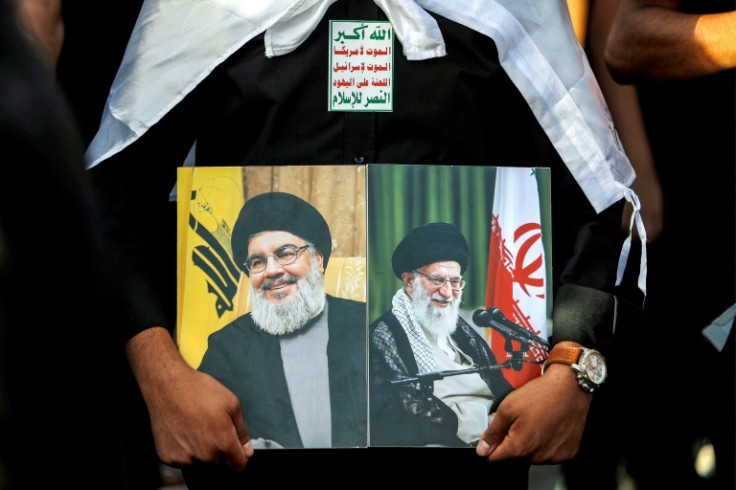
Iran's supreme leader Ayatollah Ali Khamenei is set to lead Friday prayers and deliver a public sermon that could shed light on the Islamic republic's plans after a massive missile attack on enemy Israel.
Khamenei's rare Friday sermon -- a first in almost five years -- comes three days before the one-year anniversary of the Israel-Hamas war in Gaza, triggered by the Iran-backed Palestinian group's October 7 attack.
The supreme leader, who wields the highest authority in Iran, will lead Muslims in prayer at the Imam Khomeini Grand Mosalla mosque in central Tehran, his official website said.
The prayer will follow "a commemoration ceremony" at 10:30 am (0700 GMT) for Hassan Nasrallah, the slain leader of Tehran-backed Lebanese armed movement Hezbollah.
Iran's Revolutionary Guards, who answer to Khamenei, said Tuesday's barrages of some 200 missiles were in retaliation for Israel's killing of Nasrallah alongside Guards commander Abbas Nilforoushan in a late September strike on Beirut, and of Hamas leader Ismail Haniyeh in Tehran in July.
Khamenei last led Friday prayers in January 2020 after Iran fired missiles at a US army base in Iraq, in response to a strike that killed revered Revolutionary Guards commander Qasem Soleimani.
In Tehran on Thursday, crowds waving Hezbollah and Iran flags gathered outside the former US embassy building in Tehran to denounce Israeli "crimes" in the Gaza Strip and in Lebanon, Iranian media reported.
Khamenei had declared public mourning in Iran for Nasrallah and on Wednesday said that the Hezbollah chief's death was "not a small matter".
Hamas, Hezbollah and other armed groups in the Middle East are part of the Iran-aligned "axis of resistance" opposed to Israel and its ally the United States.
Analysts said Iran's missile attack -- its second-ever directly targeting Israel -- was meant to counter a string of setbacks suffered by Tehran and its regional allies.
Iran has said this week's attack was carried out in "self-defence" and warned of "crushing attacks" on Israel if it retaliated.
The Islamic republic has also warned the US -- Israel's top arms provider -- against intervening, threatening "a harsh response" if it did.
Washington has said Iran must suffer "consequences", which may be coordinated with Israeli officials, for the ballistic missile fire.
US President Joe Biden said Thursday he was discussing possible Israeli strikes on Iranian oil sites.
In April Tehran had sent missiles and drones against Israel in retaliation for a deadly Israeli strike on Iran's consulate in Damascus.
In both attacks, nearly all missiles were intercepted by Israel or its allies, according to Israeli authorities.







